Search
What are you looking for?

In the realm of modern manufacturing, the demand for precision components has surged, necessitating advancements in micromanufacturing techniques. Micro machining services have emerged as a pivotal solution, offering unparalleled precision in the production of intricate components. This introduction delves into the essence of micromachining, exploring its significance and applications.
Precision machined components are intricately designed parts crafted with utmost accuracy to meet stringent quality standards. These components play a vital role across various industries, from aerospace to medical devices, where precision is paramount. Our company specializes in offering custom CNC (Computer Numerical Control) services, leveraging cutting-edge technology to manufacture components with exceptional accuracy and repeatability.
Precision machined aerospace components: In collaboration with a leading aerospace company, we provide precision-machined components for critical aircraft systems. Our CNC capabilities enabled us to meet the stringent tolerances required for aerospace applications, ensuring optimal performance and reliability.

Precision machined medical device components: Partnering with a medical device manufacturer, we supplied custom precision components for surgical instruments. Our CNC machining expertise allowed us to produce intricate parts with the precision necessary for delicate medical procedures, adhering to strict regulatory standards.
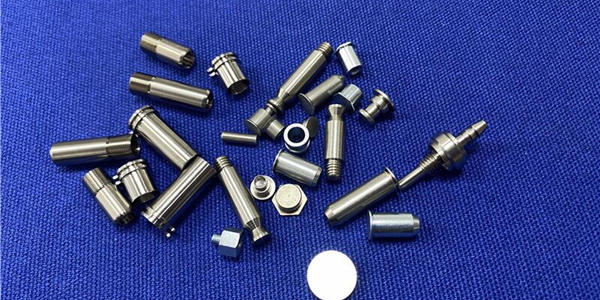
Precision machined automotive parts: Working alongside an automotive manufacturer, we delivered micro precision components for advanced vehicle systems. Through our custom CNC services, we met the automotive industry's rigorous demands for quality, durability, and performance.

With our commitment to excellence and state-of-the-art machining capabilities, we continue to collaborate with diverse industries, providing tailored solutions to meet their specific needs. As the demand for precision components grows, our micro manufacturing expertise remains at the forefront, driving innovation and shaping the future of manufacturing.
CNC (Computer Numerical Control) precision machining, particularly through Swiss machines, is an indispensable process across various industries, renowned for its ability to produce intricate and high-precision components. Swiss machines are specialized CNC lathes known for their capability to handle small, complex parts with exceptional precision and efficiency.
Applications of Swiss crew machine products made by CNC precision machining
These machines are commonly used in the production of components such as:
Medical implants and instruments: Swiss machines excel in manufacturing tiny yet highly precise medical implants like screws, pins, and bone plates. They are also crucial in crafting intricate surgical instruments with tight tolerances, ensuring optimal performance and compatibility with the human body.
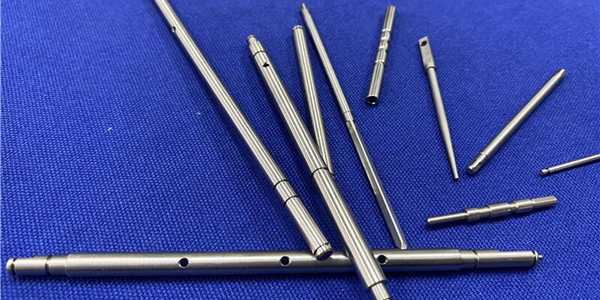
Aerospace components: Swiss machines play a vital role in the aerospace industry by producing critical components such as fasteners, connectors, and valve parts. Their ability to machine complex geometries with high accuracy makes them invaluable in the fabrication of aerospace components that require reliability and precision under extreme conditions.
Watchmaking: The watchmaking industry relies heavily on Swiss machines to create the intricate parts that power timepieces. From tiny gears and screws to delicate balance wheels and escapements, Swiss machines enable the precise manufacturing of components that contribute to the functionality and aesthetic appeal of luxury watches.
Electronics and telecommunications: In the electronics sector, Swiss machines are utilized to manufacture miniature components like connectors, pins, and sockets with precise dimensions and tolerances. These components are essential in various electronic devices, including smartphones, computers, and communication systems.
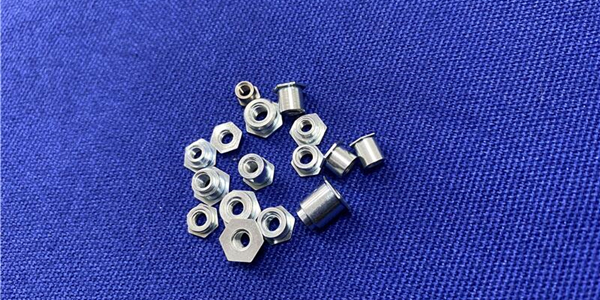
Automotive and engineering applications: Swiss machines are also employed in the automotive and engineering industries to produce small, precision-engineered parts such as shafts, bushings, and fasteners. These components contribute to the performance, durability, and safety of vehicles and mechanical systems.
Swiss machines are instrumental in the production of a wide array of small, intricate components across industries ranging from medical and aerospace to watchmaking and electronics. Their ability to achieve high levels of precision and repeatability makes them indispensable tools in modern manufacturing processes.
In micromachining, metals play a crucial role due to their excellent mechanical properties, electrical conductivity, and machinability. 5 metals are commonly used for micromachining applications:
Aluminum: Aluminum is lightweight, corrosion-resistant, and exhibits good machinability, making it suitable for various microcomponents such as microelectromechanical systems (MEMS), microsensors, and microactuators.
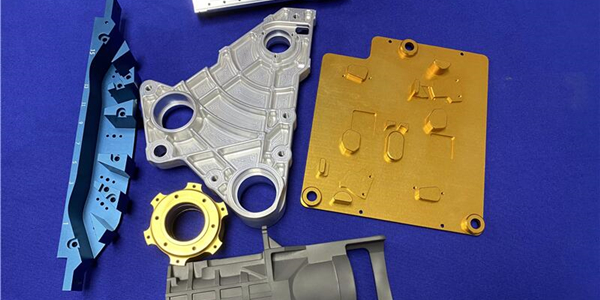
Copper and Brass: Copper and brass are valued for their high electrical conductivity, thermal conductivity, and malleability, making them ideal for microelectronic applications, interconnects, and microfluidic devices.
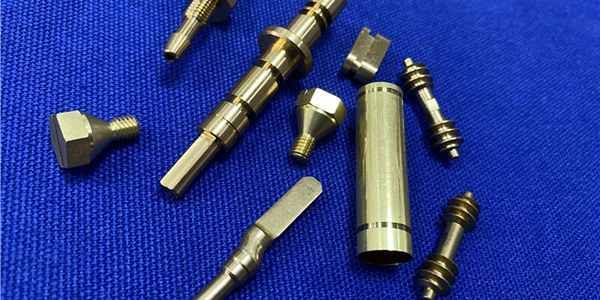
Stainless Steel: Stainless steel offers excellent corrosion resistance, mechanical strength, and biocompatibility, making it suitable for medical implants, microtools, and microsurgical instruments.
Titanium: Titanium possesses a high strength-to-weight ratio, biocompatibility, and corrosion resistance, making it suitable for biomedical implants, aerospace components, and microsurgical instruments.
Nickel: Nickel is chosen for its magnetic properties, corrosion resistance, and durability, making it suitable for microactuators, microsensors, and micro-electromagnetic devices.
These metals are selected based on the specific requirements of the micromachining application, such as mechanical strength, electrical properties, corrosion resistance, and biocompatibility, ensuring optimal performance and reliability at the microscale.